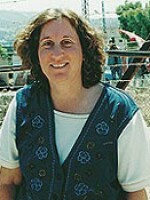STEVE INSKEEP, host:
Tens of thousands of Palestinians turned out yesterday in Gaza City for a rally in support of the Palestinian president. Mahmoud Abbas is struggling for power with the rival Hamas faction. And as we've been reporting in recent weeks, that struggle is violent. More than 30 Palestinians have been killed in factional fighting over the past month.
NPR's Linda Gradstein is tracking the Palestinian division. She's in Jerusalem. And, Linda, what triggered these demonstrations in Gaza?
LINDA GRADSTEIN: Well, it was the anniversary of the founding of Fatah by the late Yasser Arafat. And tens of thousands - some Palestinians say hundreds of thousands of people - came out in the rain, in the cold, as a show of support for Mahmoud Abbas.
And the star of the demonstration of the rally was a former senior top Palestinian official Muhammad Dahlan. There were bodyguards around him. He pushed the bodyguards away, he said if Hamas wants to kill me, let them. He then wants a scathing attack on Hamas, calling them a gang of murderers and gangsters. And he said if they harm one of us, we will harm two of them. And in the wake of the rally, there have been mutual threats by Fatah and Hamas to assassinate each other's leaders, as well.
INSKEEP: Which of these two factions is actually in control in Gaza?
GRADSTEIN: Hamas is in control in Gaza. The Palestinian prime minister Ismael Haniyeh is from a Palestinian refugee camp in Gaza. That's where he spends most of his time. And Gaza has always been a Hamas stronghold. Now it seems that Fatah is trying to challenge that with things like yesterday's rally.
INSKEEP: I understand there's a dispute over the Hamas security police. What's going on there?
GRADSTEIN: There is an armed Hamas force of about 6,000. Now, this where it kind of gets complicated. Because Abbas, who is the Palestinian president, is from Fatah And the security forces are supposed to be under his control. However, the interior minister, which also is supposed to control the security forces, is from Hamas.
Abbas said the Hamas security forces are illegal. In turn, Hamas said, we're going to double the number of those forces. So basically you've got thousands of armed men from Fatah, Hamas, from different clans roaming around this very small densely-populated Gaza strip.
INSKEEP: So you've got two different security forces in effect, each of which claims to be official and is taking orders from different people?
GRADSTEIN: Yeah, you've actually got about half a dozen security forces. There's the presidential guard. There is Hamas. There is Fatah. There are different militias. And then that's where things just get very complicated, and it's sometimes hard to tell what's factional violence, what's personal violence - it's really a big mess.
INSKEEP: Well, Linda, let's talk about factional differences of a different kind. The prime minister and the defense minister in Israel, apparently, aren't talking to each other.
GRADSTEIN: That's correct. Prime Minister Ehud Olmert is from the Kadima Party. His largest coalition partner, Labour. The defense minister is from the Labour Party, Amir Peretz. They're not talking to each other. There is no trust between them. There is a lot of speculation that Olmert will replace Peretz. At the same time Olmert's approval rating is lowest it's ever been. So there's a lot of dissension. So far, at least it hasn't turned violent, but there's plenty of dissension on the Israeli side as well.
INSKEEP: Does that make it harder for the Israeli government to try to make progress in its dealings with the Palestinian?
GRADSTEIN: It does, because what's interesting - on one hand, Olmert's coalition is very strong. But the internal divisions within Israel - one example was last week while Olmert was meeting President Hosni Mubarak of Egypt in trying to push through a prisoner exchange - Palestinian prisoners for an Israeli soldier who was captured six, seven months ago - Israeli troops in an arrest raid killed four Palestinian civilians in the Center of Ramala, wounded about 20 others, embarrassing Olmert. And Mubarak was incredibly angry. So even the army and the political establishment aren't always on the same page.
INSKEEP: Okay, that's NPR's Linda Gradstein in Jerusalem. Linda, thanks very much.
GRADSTEIN: Thank you, Steve.
INSKEEP: This is NPR News.
(Soundbite of music) Transcript provided by NPR, Copyright NPR.







